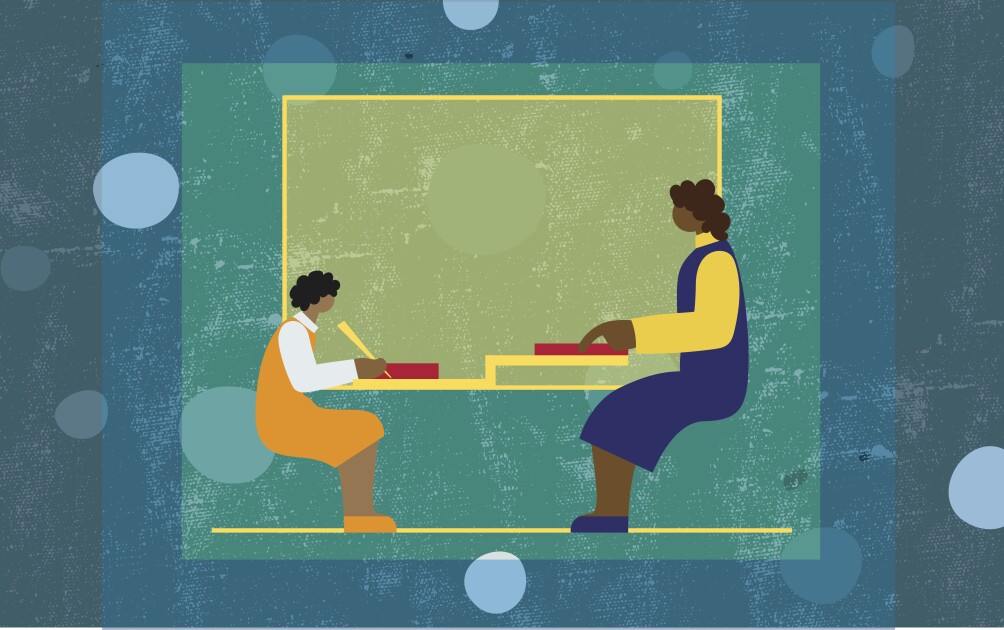These days, there are many popular ideas that come at schools. Everyone has an opinion on what they would change and how they would improve education. Sometimes it’s hard to hear because if you work within the public school setting, you are under so much scrutiny and accountability that trying anything new sounds like a far off dream. It’s hard to process how to become more creative when accountability seems to focus on the uncreative.
In an effort to change the dynamic of learning, old ideas get renamed and new ideas get lost or dismissed. It’s important that educators really listen before they dismiss too many ideas or it will just seem that public education is resistant to any kind of change, and we know that is not a new criticism of us.
Recently, I saw Sugata Mitra’s Ted Video, which is very inspiring. He is well-known for dropping computers into remote areas of the world and watching as young children pick them up and use them. The pictures and videos of children using computers when they have never seen them before is amazing to watch. It shows that children, even without any experience with technology, can figure out how to negotiate their way around a computer.
One of the powerful aspects of technology is that they offer a sense of self-discovery. Many connected educators naturally fit technology into their everyday teaching.
I am left wondering what happened to the children who walked by the computer in the wall? How do we engage them?
Education in a Cloud
There are short clips where students are engaged but unfortunately, the clips do not last long. We never see the true process that the students go through. In these times of accountability, we want to see data. Our words are no longer enough. It is not my intention to say that Dr. Mitra is off-based in his theory about education, because I agree with many of his ideas. Learning within the cloud is something we will all have to get used to, but at its core, is this really something new?
Most of the pictures are students within a small confined area using the computer. How is that different from a school building? He says that students are self-driven looking for information and that the adult only offers the question that sends students off to do research. In the public school system, we refer to that as inquiry-based learning. I admit that it doesn’t happen as much as it should and that needs to change.
Students should be given questions to ponder and then be sent to research on their own. Teachers should not stand at the front of the classroom demanding students follow the path the teacher sets, at the same time they dismiss what students want to learn. Education in a cloud is an inspiring idea but it is merely one idea out of many.
Fire Teachers and Replace Them With iPads
Technology is a tool that offers infinite resources. Students and educators have the ability to research and find information that would have taken hours in a library years ago. Social networking connects people from around the world, and it is possible to build great relationships with people you may not ever meet in person. This is all real and it’s happening now.
Just remember though...technology is a tool. We cannot simply fire teachers and give kids iPads and expect them to learn everything they need for their future. That premise is too simplistic. Students need multiple pathways and various tools to learn. Teachers are the ones who have an important part in that facilitation of learning, and parents do as well.
It scares me to think some policy maker would watch the video and think that we don’t need schools right now because we can offer it in a cloud. Let’s face it, some policy makers will believe that.
Mitra is correct when he says that “It’s not about making learning happen. It’s about letting learning happen. The teacher sets the learning in motion and then stands back.” That is inquiry-based learning and we need high quality teachers who can help students further their thinking. Schools are not just brick and mortar. They are places where students are inspired by ideas and they learn from peers who look different and come from different families.
Learning does not just happen on the computer or in a cloud. Learning happens when we encourage kids to have real conversations with one another. Learning happens when we debate each other and stretch our thinking. Technology is a catalyst for learning but we need more than technology to do that. We need innovative teachers and school leaders.
The Kids We Don’t See
Teachers and administrators are not just concerned about the students who pick up the computer in a remote area of the world. It’s great to see this happen and it is mind-boggling to think what they must be thinking when they first see the screen, the mouse or the graphic.
Teachers and administrators are concerned about all of the children, including those who walked by, not wanting to look at it. For every three children who played with the computer, there are hundreds who passed it by. Educators are concerned about the students who can’t jump on the road to learning because they do not have enough to eat or lack a home to shelter them and a bed to sleep in.
There are so many students who have the luxury of picking up an iPad or a computer and researching until their learning is complete. There are still too many students who do not care about the computer in the wall or the cloud in the sky.
Connect with Peter on Twitter
Resource:
30 Incredible Ways Technology will Change Education by 2028.



